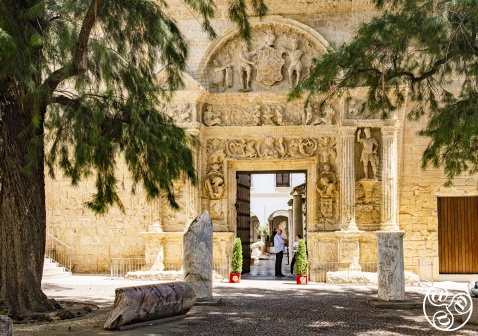
The Archaeological Museum of Cordoba |
|
Museums in Andaluca
Andaluccia, with its rich history and cultural heritage, is a treasure trove for art and history enthusiasts. The region's cities, each with its unique character, boast a wide array of fascinating museums that offer a glimpse into the region's past and present. Here's why visiting city museums should be on your Andalusian itinerary:
Museums in Cities
There are museums in all eight of Andalucia's capital cities. The main museum in each city is usually the Archaeological Museum and the Fine Arts Museum. They are often incorporated into a museum simply named after the city, such as the Malaga Museum.
Museums in Huelva City: Museo de Huelva, Casa-Museo Zenobia-Juan Ramón, Museo Diocesano de Arte Sacro, Monasterio de la Rábida.
Cadiz Museum incorporates both the Fine Arts & Archaeology museums. Also of interest are the municipal historical museum, the Cathedral Museum, Puppet Museum, Lithographic museum, the… More →
The Museo de Artes y Costumbres Populares is devoted to a more general tradition of arts and culture. The archaeological museum covers a period dating back to Paleolithic times, while the Casa de… More →
Whether you like wine, archaeology or cars; you’re interested in glass, contemporary art or 19th century painting, you’re sure to find at least one museum which will interest you in the city. Most… More →
There are several museums worth visiting in Jaen: Museo Íbero, Museo de Artes y Costumbres Populares, Museo de Jaen, International Museum of Art Naif and more.
Museums in Cordoba City: Museo de Joyerá Regina, Alcázar de los Reyes Cristianos, Museo Arqueológico, Museo de Bellas Artes, Museo Julio Romero de Torres, Museo Diocesano de Bellas Artes, Museo… More →
Almería as one of the eight provincial capitals of Andalucia houses various museums. True historians will appreciate the Almeria Museum which contains numerous objects discovered by the well-known… More →
Museums in Granada City: Museo de la Alhambra, Basilica de San Juan de Dios, Cartuja de la Asunción, Casa de los Pisa, Casa-Museo Angel Barrios, Casa- Museo Federico García Lorca and more.
Museums in the Provinces
Outside the capital, in the towns and villages of each of Andalusia's eight provinces, a wealth of culture and history is on display in many smaller museums. These museums often focus on the specific history, culture and traditions of their locality. You'll get a more authentic and intimate understanding of Andalusian life. Many of these smaller museums house fascinating collections of artefacts, documents and works of art that may not be found in larger, more well-known institutions.
Read more about the museums in the province of Almería.
Granada Province Museums: Museo Arqueológico, Museo de Artes y Costumbres Populares, Museo de Aceite and more.
Córdoba Province Museums: Museo Municipal, Museo Histórico Local, Museo Histórico-Arqueológico, Museo Parroquial and more.
See the Museums in Sevilla city and Sevilla province: Museo Arqueológico de Itálica, Museo de la Ciudad, Museo y Necrópolis Romana and more.
Huelva Province Museums: Colección del Santo Rosario, Museo Municipal, Museo Ferroviario de Rio Tinto, Museo Minero and more.
Jaén Province Museums: Museo Catedralicio, Museo del Alto Guadalquivir, Museo de la Carolina, Museo Arqueológico and more.
Museums in Cádiz province: Museo Municipal, Museo Tesoro Parroquial, Museo Monográfico de Baelo Claudia, Colección de Relojes and more.
Other museums in Málaga City and province: Museo de la ciudad de Antequera, Museo de Benalmádena, Museo de Nerja and more.
Interpretation Centres
Many of the natural parks and more popular historic monuments such as castles will have an 'interpretation centre' (Centro de Interpretación), which in other countries might be called a visitor centre. The focus is on explanation and education relating to the site and its wider environmental context. This will include display panels, interactive models and presentation films. There will be some artefacts on display, but not to the same extent as in a museum. The interpretation centres are well worth a visit. They are usually run by regional or local authorities, admission is free but opening hours tend to be limited to office hours.
